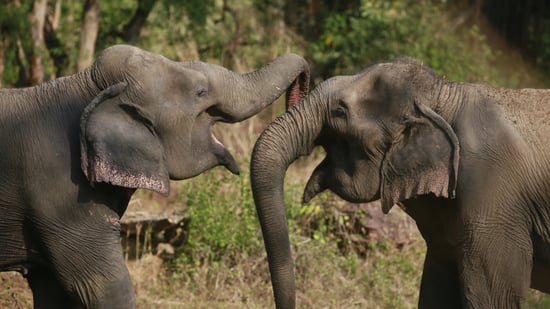World Bear Day
Animal Awareness Days
World Bear Day is observed around the globe on March 23rd and celebrates all bears. Join us in celebrating these much-loved mammals and find out more here!

Animal Awareness Days
International Jaguar Day is observed around the world on November 29th.
Read on to find out more about jaguars, what threats they face, and what you can do to help.
International Jaguar Day is an annual celebration dedicated to raising awareness about the conservation of jaguars and their vital role in ecosystems.
Jaguars face significant challenges. They are losing their habitats due to deforestation driven by factory farming, and their territories are increasingly at risk from fires, threatening both jaguars and the prey animals they rely on.
Tragically, jaguars are often exploited; they are killed for use in traditional Asian medicine and are popular targets for poaching.
International Jaguar Day seeks to highlight the urgent need to protect this magnificent species.
International Jaguar Day is celebrated every year on November 29th.
Are you looking for something to watch on International Jaguar Day? World Animal Protection's short documentary, Jaguar Spirit explores a personal journey uncovering how Bolivia became the centre of the illegal jaguar trade.

When you make a donation, you’ll join a passionate group of supporters who are determined to change the world for animals. We're fighting animal cruelty wherever we find it — are you with us?
DonateThe third biggest cat in the world after tigers and lions, the jaguar can reach almost 2.5 meters in length and weigh up to 113kg, a bulk required for hunting large prey.
Although it is worth noting they can differ greatly in size across different regions. Jaguars have a leopard like appearance with fur that is tan or orange in colour, and spots called “rosettes” often featuring a complex pattern of central dots.
Jaguars are the only big cat to live in the America’s (they were worshipped as Gods in ancient cultures), mostly found in rainforest and tropical wetlands. According to National Geographic, the jaguar once colonised a vast area from central Argentina up to the southwest of the US but they have lost over half this territory since the 1880’s. Now mainly found in the Amazon Basin and the Pantanal in much smaller numbers. WWF estimates Brazil may hold around half the remaining population of jaguars.
Keen swimmers, jaguars hunt fish, turtles, and even caiman! These carnivorous cats have a diet rich in meat too, with prey including deer, capybaras, and even South America’s largest animal the tapir. Jaguars are nocturnal as well as diurnal, meaning they are capable of night-time and daytime hunting, often travelling over six miles in search of a meal.
Female jaguars usually have litters of two cubs (but can sometimes birth four). Jaguar cubs are born blind so are totally dependent on their mother. They remain with her for around two years while she fiercely protects them from predators, even their father, until they are ready to fend for themselves.
Read more on our Jaguar Facts Blog
The jaguar is at an extinction status of ‘near threatened’ and according to Wildlife Conservation Society they face threats mostly from humans including:
By taking action on International Jaguar Day, individuals and communities can help protect jaguars and preserve the ecosystems they depend on. Here are some meaningful ways to make a difference:
Much of the world's cheap meat comes from cattle fed on soy produced through large-scale deforestation. Agricultural expansion is the biggest driver of habitat loss, destroying the forests jaguars call home.
Jaguars are often poached for their teeth, bones, and body parts, which are used in traditional medicine and the illegal wildlife trade.
Help us secure a future for jaguars and their habitats. Donate today!
Animal Awareness Days
World Bear Day is observed around the globe on March 23rd and celebrates all bears. Join us in celebrating these much-loved mammals and find out more here!
Animal Awareness Days
Learn about International Animal Rights Day and why it matters. Find out how to get involved in protecting animals.
Animal Awareness Days
Learn about International Tiger Day and why we need to protect the world's largest wild cats.
Blog
Discover the truth behind captive wildlife attractions. Learn why these cruel practices harm animals and how we can...
Blog
Discover how you can see elephants in a humane way without supporting harmful tourism practices.
Blog
Learn how climate change affects wildlife and ecosystems around the world. Discover ways to help protect endangered species...
Blog
Learn how ocean exploitation is harming marine wildlife and what we can do to protect the oceans. Support...